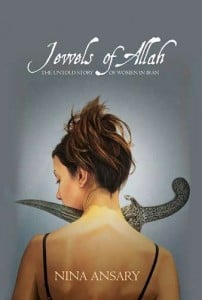Salon’s “Feminists face off over the veil” is supposed to reflect a serious debate, not only related to feminism itself, but to the conception non-Muslim feminists have of Islam. Writer Tracy Clark-Flory depicts the feud in a very anti-feminist way, as some kind of wrestling game: “In one corner, we have Naomi Wolf […] In the other, we have Phyllis Chesler”. The warlike lexicon in this text seems trying either to turn the dialogue between the two feminists into an aggressive interaction (like, yeah, you know how all these feminists are) or to create the effect of a contradictory debate in a place where there is not much contradiction.
Wolf’s and Chesler’s positions actually have a lot in common because they first and foremost share a similar ground as non-Muslim feminist writers. They talk about the reasons why Muslim women are wearing a veil, and whether they should be allowed to do so, according to their own feminist touchstone. This feminist touchstone is not clearly
defined and universally taken for granted.
At that point, dear reader, all you have to do is not to think by yourself. Clark-Flory wants you to “pull up a chair and grab some popcorn”, like the passive television viewer of some stupid movie.
To sum up briefly their perspectives, Naomi Wolf thinks that anyone who chose the veil should not be prevented from wearing it because behind the veils of some women she met in Morocco, Jordan and Egypt, she found out that they were “sexy”: Muslims can be hot, too!
It seems like Wolf needs to reassure herself: “they” are like “us”, at the end. This conclusion is unfortunately quite poor and inaccurate: if “they” were like “you”, why are “they” commonly considered less free and less able to think by themselves than you are?
It would have been much more interesting if Wolf only tried to challenge the categorization itself (“us” on one side, “them” on the other) instead of thinking into this very restrained frame.
Moreover, she seems to implicitly refer to some eternal essence of woman when she writes: “…but inside, women were as interested in allure, seduction and pleasure as women anywhere in the world.”
This is very embarrassing to read such a statement from a feminist author; are all women necessarily interested in allure, seduction and pleasure? Are all women, whatever they choose to wear and wherever they live, are necessarily sharing the same myths and ideals as Western women?
Chesler’s point of view is more explicit and less subtle than Wolf’s: she thinks that most of Muslim women have no choice at all and get lashed and “honor murdered by their own families” if they refuse to wear a veil. Those people – “them”/”the others” – truly are monsters.
At the end, both are rooted in the same ethnocentric prejudice due to the lack of clear and explicit evaluation of their own position as non-Muslim feminists producing a feminist discourse on Muslim women. Clark-Flory keeps up the contradiction between them because it is basically the only raison d’être of her text. The show must go on!
“Chesler is horrified by Wolf’s argument and doesn’t pull any punches
in a blog response titled “The Burqa: Ultimate Feminist Choice?” It
bears the taunting subhead: “Naomi Wolf Discovers That Shrouds Are
Sexy.” Chesler hyperbolizes Wolf’s argument, suggesting that she sees
women in chadors as “feminist ninja warriors” and “believes that the
marital sex is hotter when women ‘cover’ and reveal their faces and
bodies only to their husbands.”
In the very last sentence of this very dramatic but hollow paragraph–“horrified”, “taunting”, “hyperbolizes”–Chesler attributes to Wolf a quite common Orientalist and sexist fantasy. If veils and burqas are used by Muslim couples to enhance marital sex, why the hell do you keep on commercializing Viagra?
Chesler’s argument is ridiculous. It is also the expression of a misunderstanding of Islam and a profound contempt, as if Muslim women were men’s puppets and more submitted to social representation than other women, as if the veil had nothing to do with spirituality and was not a relation to God.
Naomi Wolf is right when she writes, “Ideological battles are often waged with women’s bodies as their emblems, and Western Islamophobia is no exception.” It is a real pity that neither she nor Chesler realizes that they are taking part in the battle – as far as they go on speaking to “us” in the name of the “others”.











